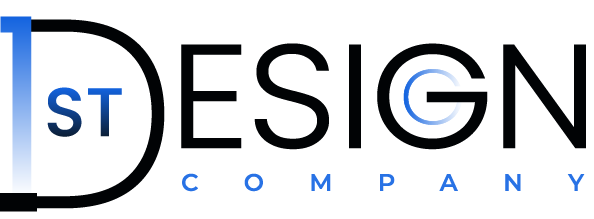In the world of beauty and aesthetics, Permanent Makeup (PMU) artists are carving out a significant niche. While the opportunities in this field are plentiful, they come with their own set of risks. Insurance is not just a safety net; it is a crucial component of running a successful PMU business. This article will delve into the essential insurance types PMU artists need and explain why each one is vital.
Understanding Permanent Makeup (PMU)
Definition and Scope – Permanent Makeup, often abbreviated as PMU, refers to cosmetic tattooing procedures that enhance facial features such as:
- eyebrows
- eyeliner
- lips
These procedures are designed to last for several years, offering a long-term solution for beauty enhancement.
Popular Procedures – Common PMU procedures include:
- microblading for eyebrows
- permanent eyeliner
- lip blushing
- scalp micropigmentation
- areola and scarms micropigmentation
Each technique requires precision and expertise, making the role of a PMU artist both an art and a science.
Why PMU Artists Need Insurance

Risks Involved in PMU Procedures: PMU procedures involve needles, pigments, and the delicate skin of clients. The risks include allergic reactions, infections, and dissatisfaction with the results. Even the most skilled artists can face complications, making insurance a necessity.
Legal and Financial Protection: Without proper insurance, PMU artists can face lawsuits and hefty financial losses. Insurance provides a legal safeguard, covering legal fees and settlements that could otherwise cripple a business.
Types of Insurance for PMU Artists
- General Liability Insurance: This insurance covers accidents that occur on your premises, such as a client slipping and falling. It’s the foundational insurance every business should have.
- Professional Liability Insurance: Also known as malpractice insurance, this covers claims related to the services you provide. If a client alleges that a procedure was performed incorrectly, this insurance can cover legal costs and settlements.
- Product Liability Insurance: This type of insurance covers issues arising from the products you use or sell. If a client has an adverse reaction to a pigment or aftercare product, product liability insurance protects you from related claims.
- Property Insurance: Your equipment and studio are significant investments. Property insurance covers damages or losses due to events like fire, theft, or natural disasters.
- Workers’ Compensation Insurance: If you have employees, this insurance is often legally required. It covers medical expenses and lost wages if an employee is injured on the job.
General Liability Insurance
Coverage Details: General liability insurance covers third-party bodily injuries, property damage, and personal and advertising injuries. This includes incidents like a client tripping over a cable in your studio.
Importance for PMU Artists: For PMU artists, this insurance is essential as it covers common risks that could happen during day-to-day operations. It ensures that you’re not financially burdened by accidents that occur in your workspace.
Professional Liability Insurance
What It Covers: Professional liability insurance covers claims related to professional errors, omissions, or negligence. If a client is unhappy with their results and sues for damages, this insurance can cover the legal fees and compensation.
Why It’s Essential: Given the precision required in PMU procedures, even minor mistakes can lead to significant client dissatisfaction. This insurance provides protection against the high costs of legal battles and settlements.
Product Liability Insurance
Scope of Coverage: Product liability insurance covers injuries or damages caused by products you supply or use during your services. This includes allergic reactions or infections caused by pigments or aftercare products.
Relevance to PMU Products: PMU artists use a variety of products that come into direct contact with clients’ skin. Ensuring that you are covered for any adverse reactions is crucial for protecting your business.
Property Insurance

Protecting Your Equipment and Studio: Property insurance protects the physical assets of your business, including your studio and equipment. It covers losses from events like fire, theft, or vandalism.
Coverage Options: You can choose policies that cover the replacement cost or the actual cash value of your property. Replacement cost coverage ensures you can replace items at current market value, while actual cash value accounts for depreciation.
Workers’ Compensation Insurance
Coverage for Employees – Workers’ compensation insurance covers medical expenses and lost wages for employees injured on the job. This is crucial for businesses with staff, ensuring they are cared for if an accident happens.
Legal Requirements – In many places, having workers’ compensation insurance is a legal requirement if you have employees. It’s important to check local regulations to ensure compliance.
How to Choose the Right Insurance
- Assessing Your Needs – Evaluate the specific risks associated with your business. Consider the types of procedures you perform, the products you use, and the size of your studio.
- Comparing Insurance Providers – Look for providers that specialize in insurance for beauty and aesthetics professionals. Compare coverage options, costs, and customer reviews.
- Reading the Fine Print – Understand the exclusions and limitations of each policy. Make sure you know what is and isn’t covered to avoid surprises when you need to file a claim.
Cost of Insurance for PMU Artists
Factors Affecting Insurance Premiums: Insurance costs can vary based on factors like the size of your business, location, and the types of procedures you offer. Higher-risk services may lead to higher premiums.
Average Costs: On average, PMU artists can expect to pay between $500 and $2,000 annually for comprehensive coverage. However, this can vary widely based on individual circumstances.
Real-life Scenarios
Case Studies of PMU Artists: Consider the case of a PMU artist who faced a lawsuit after a client had an allergic reaction to a pigment. Without product liability insurance, the costs could have been devastating.
Lessons Learned: These scenarios highlight the importance of having the right insurance coverage to protect against unforeseen events and ensure business continuity.
Common Mistakes to Avoid
Underestimating Coverage Needs: Many PMU artists make the mistake of opting for minimal coverage to save costs. This can lead to significant financial strain if a major incident occurs.
Ignoring Policy Details: Failing to read and understand policy details can result in unexpected gaps in coverage. Always review your policies thoroughly.
Benefits of Having Comprehensive Insurance
Peace of Mind: Knowing you have robust insurance coverage allows you to focus on your craft without worrying about potential financial setbacks.
Financial Security: Insurance protects your business assets and ensures you can continue operating even after a costly incident.
Conclusion
Insurance is a critical component of any PMU artist’s business strategy. It provides legal and financial protection, allowing you to operate with confidence. By understanding the different types of insurance and their importance, you can make informed decisions that safeguard your business.
FAQs
What is the most important insurance for PMU artists?
Professional liability insurance is crucial as it covers claims related to the services you provide, protecting you from potential lawsuits.
How much does insurance for PMU artists typically cost?
Costs can vary, but on average, comprehensive coverage can range from $500 to $2,000 annually.
Can I operate without insurance as a PMU artist?
While it’s possible, it’s highly risky. Without insurance, you could face significant financial losses from lawsuits or damages.
How do I file a claim if something goes wrong?
Contact your insurance provider immediately, provide all necessary documentation, and follow their procedures for



